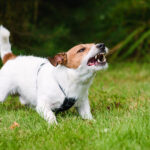Why Is My Dog Coughing And Sneezing
Why Is My Dog Coughing and Sneezing: Causes, Symptoms, and Treatment
If you’re a dog owner, you know how much joy and companionship your furry friend can bring to your life. However, you also know how worrying it can be when they start coughing and sneezing. While some occasional coughing or sneezing is normal for dogs, especially if they’ve been playing or running around, persistent or severe coughing and sneezing can indicate an underlying health issue that requires attention. In this article, we’ll explore some of the possible causes, symptoms, and treatments for why your dog is coughing and sneezing.
Causes of Coughing and Sneezing in Dogs
There are many possible reasons why your dog may be coughing and sneezing, ranging from mild to severe. Here are some of the most common causes:
1. Respiratory infections – Dogs can catch viral or bacterial infections that affect their respiratory system, such as kennel cough (Bordetella), canine influenza (H3N8 or H3N2), or pneumonia. These infections can spread easily among dogs who spend time in close proximity to each other, such as in boarding kennels, grooming salons, or dog parks. Symptoms may include a dry hacking cough, retching or gagging after coughing, nasal discharge, fever, lethargy, and loss of appetite.
2. Allergies – Dogs can develop allergies to various environmental factors such as pollen, dust mites, mold spores, or cigarette smoke. They may also be sensitive to certain foods or ingredients in their diet. Allergies can cause respiratory symptoms such as sneezing, runny nose, watery eyes, itching skin, hair loss, and ear infections.
3. Asthma – Dogs can suffer from a condition similar to human asthma that causes inflammation and narrowing of the airways, making it difficult to breathe. Asthma can be triggered by various factors such as stress, exercise, cold air, or allergens. Symptoms may include coughing, wheezing, rapid breathing, lethargy, and blue-tinged gums.
4. Heart disease – Dogs can develop various types of heart disease that affect their ability to pump blood efficiently, leading to fluid accumulation in the lungs and respiratory distress. Heart disease can be congenital or acquired due to aging, obesity, infections, or other factors. Symptoms may include coughing (especially at night), shortness of breath, fatigue, weakness, and collapse.
5. Cancer – Dogs can get cancer in various parts of their body, including the lungs or nasal cavity. Cancer can cause respiratory symptoms such as coughing (usually dry and persistent), difficulty breathing, wheezing, sneezing, nasal discharge (bloody or foul-smelling), weight loss, and lethargy.
Symptoms of Coughing and Sneezing in Dogs
Depending on the underlying cause of your dog’s coughing and sneezing, you may notice different signs and severity of symptoms. Here are some common ones:
1. Cough – Different types of coughs have different sounds and meanings for dogs. A dry hacking cough may indicate kennel cough or asthma, while a moist productive cough may suggest pneumonia or heart disease. A gagging or retching sound after coughing may signal tracheal collapse or foreign object ingestion.
2. Sneezing – Dogs usually sneeze to clear their nasal passages from irritants or mucus. However, if they sneeze excessively or forcefully, it may indicate an allergy or infection.
3. Nasal discharge – Dogs can have clear or colored discharge from their nose depending on the cause of their respiratory problem. Clear discharge may be normal if your dog is just trying to clean their nose, but yellow or green discharge may indicate an infection. Bloody or foul-smelling discharge may suggest cancer.
4. Breathing difficulties – Dogs should breathe quietly and smoothly at rest. If they have difficulty breathing, such as panting, rapid breathing, or shallow breathing, it may indicate a respiratory or cardiac problem.
5. Other symptoms – Depending on the severity and duration of your dog’s coughing and sneezing, you may notice other signs such as fever, lethargy, loss of appetite, weight loss, vomiting, diarrhea, or behavioral changes.
Treatment of Coughing and Sneezing in Dogs
The treatment for your dog’s coughing and sneezing depends on the underlying cause. Here are some general guidelines:
1. Respiratory infections – Most mild cases of kennel cough or canine influenza can be treated with rest, hydration, and symptomatic relief such as cough suppressants or antibiotics if necessary. Severe cases of pneumonia may require hospitalization and supportive care such as oxygen therapy or intravenous fluids.
2. Allergies – The best way to treat allergies in dogs is to identify and avoid the allergens if possible. You may also use antihistamines, corticosteroids, or immunotherapy under veterinary supervision to manage the symptoms.
3. Asthma – Asthma in dogs can be managed with bronchodilators (e.g., albuterol), corticosteroids, or inhalers that dilate the airways and reduce inflammation. Your vet may also recommend lifestyle changes such as weight loss, stress reduction, or air filtration.
4. Heart disease – Treatment for heart disease in dogs varies depending on the type and severity of the condition. It may include medications such as diuretics, ACE inhibitors, beta-blockers, or pimobendan that improve heart function and reduce fluid buildup. Surgery or other interventions may be necessary in some cases.
5. Cancer – Treatment for cancer in dogs depends on the location, stage, and type of tumor. It may include surgery, chemotherapy, radiation therapy, or palliative care depending on the prognosis and quality of life.
Conclusion
In conclusion, coughing and sneezing in dogs can have many causes and symptoms that require veterinary attention. As a responsible dog owner, you should monitor your dog’s respiratory health regularly and seek professional help if you notice any persistent or severe signs of discomfort. Remember to provide your dog with a healthy diet, exercise routine, and stress-free environment to minimize their risk of developing respiratory problems. And last but not least, give them lots of love and belly rubs!



